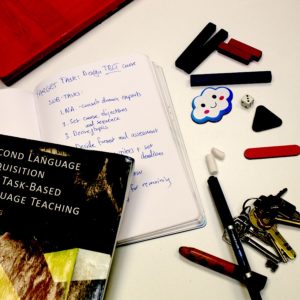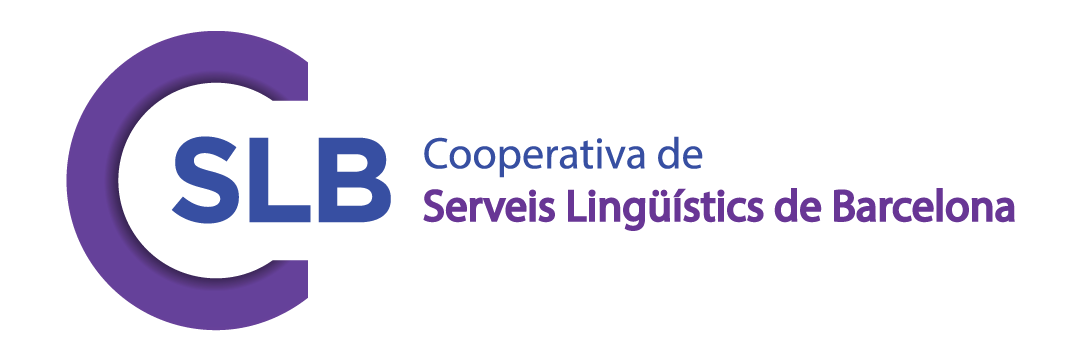Two years ago, several SLB cooperative members decided to invest extra time and money into building an e-learning platform. We are now finally launching that platform, learn.SLB, with its first teacher-training and language-learning courses.
Why launch an e-learning platform?
As a co-op with several materials writers and course developers, it seemed a natural move to look to adapt those skills to a digital environment. We also felt that the market was becoming flooded with poorly written, personality-less e-learning materials, particularly for language learners, with far too much emphasis on discrete grammar exercises or granular progress measures, and not enough on engaging input, meaningful response, interaction or skill development.
It has also been another exercise in discovering the limits of what we are capable of as a cooperative, and finding ways to push those limits back a little bit more. Members put hard-saved money into kick-starting the project, and beyond that, a significant amount of time designing, trialling, redesigning and finally implementing the e-learning platform we have today. Not to mention content creation!

Over time, if it is successful enough to pay back that money and effort (and we believe it can be), it will be yet more proof that teachers and teacher-trainers are capable of cooperating, cooperativising and organising their own work.
What do you mean by e-learning, then?
We mean two types of course, really. The first is online only, a set of resources for learning or developing where activities receive instant feedback and a teacher or tutor is minimally involved, or not at all. The second is blended, where online exercises work alongside collaborative activities such as forum (asynchronous) or tutorial (synchronous) group discussions, with assignments graded and given feedback by a teacher. This may all take place online, but it’s still a blend of more traditional ‘face-to-face’ and purely digital learning.
The first course we trialled, and which is now being used, is the Maletín Pedagógico. This was developed by Andrew Dodd of Mental Health Friendly in collaboration with Salut Mental Catalunya, and is a kind of combination of ‘online-only’ and ‘blended’ course. In fact, this is not really a course as such, but the repository of a course, for tutors in community classes who are using Andrew’s materials to teach English. In addition to having downloadable copies of all the guides, powerpoints, cards and handouts for the sessions, with additional tips on extending or adapting the classes, the tutors can display interactive exercises for students to do collaboratively. And they can use the forum to share their own ideas on developing the course.
The second course we developed was a series of classes based on authentic film and video, for SLB client Glassworks Barcelona. This company make films and special effects, and the students could talk to you about film and TV all day. We found the platform to be a great medium for developing bottom-up listening skills by using clips from movies and series the students themselves wanted to understand in English. A bit like this one:
Meanwhile, the interest in Task-Based Language Teaching (TBLT) among several SLB soci@s, including Geoffrey Jordan, Marc Jones and myself, led to the creation of the TBLT teacher training course, which will start in March 2019. Registration for this fully blended course is now open, with the first session, Why TBLT?, available for a free viewing. As this is our most ambitious project to date, let’s tell you more about it.
Why launch a TBLT teacher-training course?
TBLT is regarded positively by many researchers and theorists of second language acquisition (SLA), but is not applied practically to the degree that this should merit. This is down to a number of factors: not only can TBLT be a time-consuming, resource-heavy approach to implement, but many EFL/ESL/ESOL teachers—particularly in the private sector—don’t have the training to put it into practice. In spite of being a viable alternative to coursebook-driven ELT, then, TBLT suffers from a gap between theory and practice that a well-pitched training course could seek to bridge.
 The most thorough and impressive scholarly work on TBLT to date has been Mike Long‘s Second Language Acquisition and Task-Based Language Teaching (2015). This book is, however, quite dense and academic, and is not exactly something that ordinary teachers are likely to pick up and start running with. So this gave us our initial inspiration: write a blended teacher-training course that breaks down Long’s book into a series of dynamic training sessions, giving teachers both the theory of TBLT, and the tools to put it into practice.
The most thorough and impressive scholarly work on TBLT to date has been Mike Long‘s Second Language Acquisition and Task-Based Language Teaching (2015). This book is, however, quite dense and academic, and is not exactly something that ordinary teachers are likely to pick up and start running with. So this gave us our initial inspiration: write a blended teacher-training course that breaks down Long’s book into a series of dynamic training sessions, giving teachers both the theory of TBLT, and the tools to put it into practice.
At the same time, we want to present practical adaptations of Long’s TBLT for more restricted circumstances. As Long himself admits, TBLT seems to work best when delivered by large, well-funded and well-resourced institutions. In our view, however, a lighter version of TBLT is possible, and remains a much better option than the canonical alternative: dragging students through the typical grammar syllabus presented by coursebooks.
In creating this course, we’ve had the good fortune to be able to consult Mike Long, who has also agreed to be a guest tutor for one of the sessions. Even better, Mike has forfeited payment in exchange for becoming a member of our cooperative! We’ve also managed to recruit Roger Gilabert from the University of Barcelona and we hope to involve other renowned experts from the field in the future.
So what else can we expect from learn.SLB?
Aside from further iterations of the TBLT course, we hope to put together some courses for English learners in the near future. We are also open to suggestions from course writers both inside and outside our cooperative. In line with our commitment to fair pay and conditions, we reject the fee-based model now adopted by most publishers. We aim to pay advances and a decent royalty so that writers can benefit from their work for as long as it is successful. So if you are interested and have a proposal to make, please get in touch via our contact form!
This post is slightly adapted from the one originally published on www.slb.coop entitled “SLB launches e-learning platform, learn.SLB”
